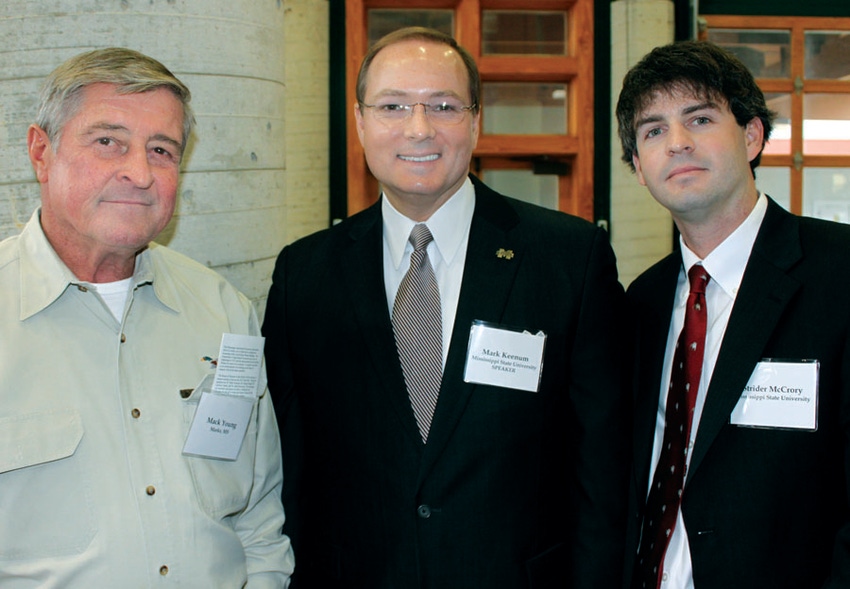
For someone in high school thinking about a future in agriculture, to be competitive they will need as much education as possible, says Mississippi State University President Mark Keenum. "We're seeing more innovations in production agriculture every day, and the science behind this technology will continue to proliferate,” he said at the annual conference of the Mississippi Agricultural Economics Association.

As agricultural technology becomes more sophisticated and production and marketing become increasingly challenging in a global environment, education will be all the more important to those seeking careers in agriculture.
“In the next 20 years, I think there will be huge opportunities for students to find challenging, rewarding careers in agriculture,” Randy Knight, president of the Mississippi Farm Bureau Federation, said in a panel discussion at the annual conference of the Mississippi Agricultural Economics Association. “I think the future for ag jobs looks really, really bright.”
Mississippi State University President Mark Keenum agreed: “More and more we in agriculture have come to take technology for granted, and the next 15 years will see a multiplication of the achievements in this field.
“ My big message to students is, ‘Go beyond high school; get as much education as you possibly can.’ For someone in high school thinking about a future in agriculture, to be competitive they will need as much education as possible. We're seeing more innovations in production agriculture every day, and the science behind this technology will continue to proliferate.”
Burgeoning populations and improving incomes emerging markets will increase food demand and “offer great opportunities for countries that are on the cutting edge in research and technology,” Keenum says.
“China is investing way more in agricultural research than we are, as is Brazil, and I worry that these countries could take over as leaders in technological development if we in the U.S. don’t step up our agricultural research programs.”
Carlisle Clarke, agricultural liaison for Senator Thad Cochran, R-Miss., said because of the far-reaching impact of food production, not only in U.S. but globally, “We have to continue making investments in ag research and technology. It’s something that can’t be ignored — it’s the future.”
He said Sen. Cochran has tried to prioritize funding for agricultural research through institutions like Mississippi State University “in order to address concerns that we presently face, as well as to prepare us for the much greater needs of the future.”
Bert Greenwalt, who farms with his family at Hazen, Ark., and is professor of agricultural economics at the Arkansas State University College of Agriculture and Technology,said, “It’s all about ‘how can I add value to my family’s farm business if that’s where I will return, or how can I add value to my future employer if I go into the job market? Education is vital to being able to add that value.”
About the Author(s)
You May Also Like



